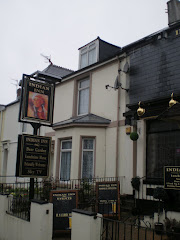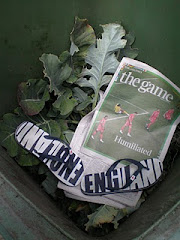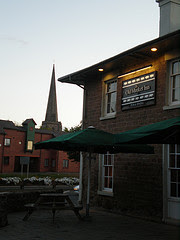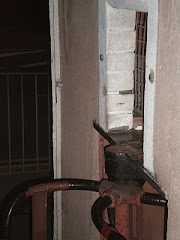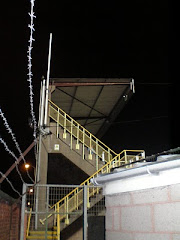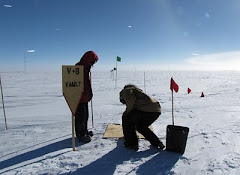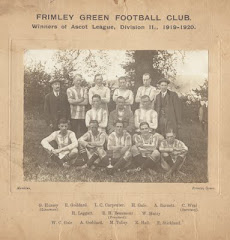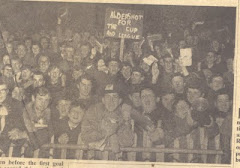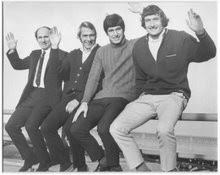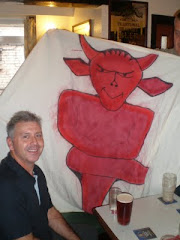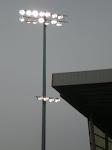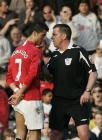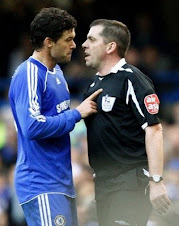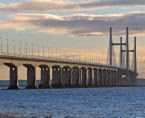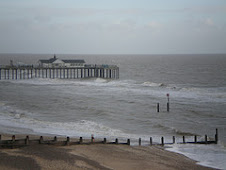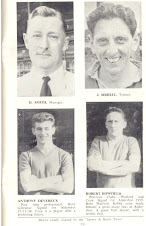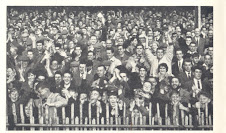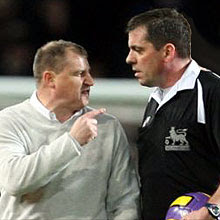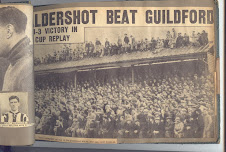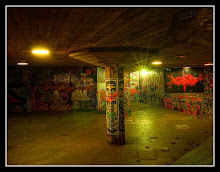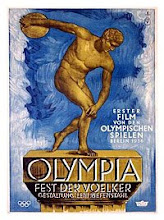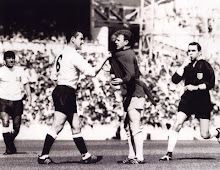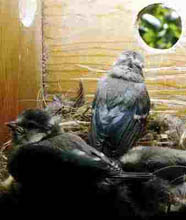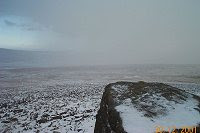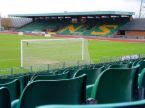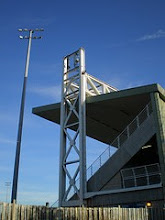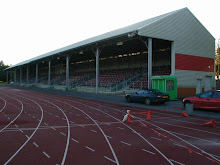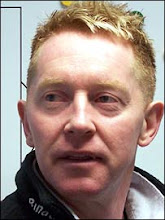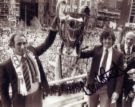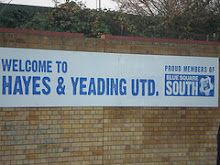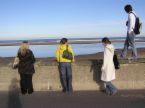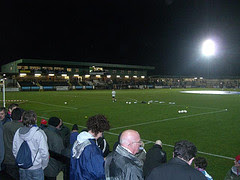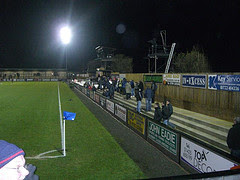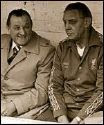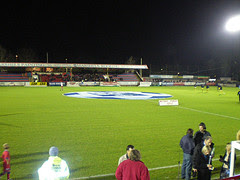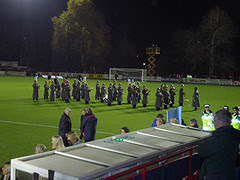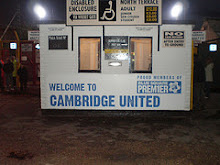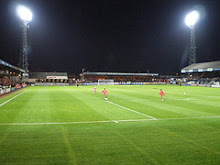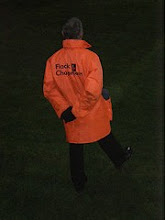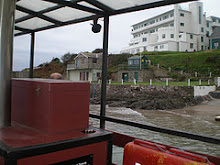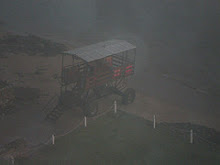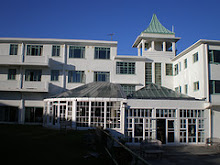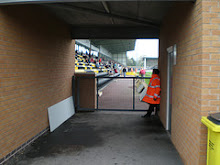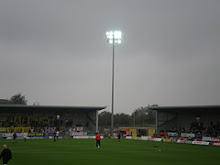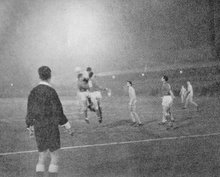Monday, 1 December 2025
Monday, 13 March 2023
Time to see beyond the headlines
Gary Lineker was undoubtedly a pretty good footballer, and certainly much loved by the fans of each of his clubs – Leicester City, Everton, Barcelona, Tottenham Hotspur and Nagoya Grampus Eight. And his appeal shone brightly in Spain, where his positive engagement with the local way of life was so dissimilar to the distant, golf loving Gareth Bale.
Despite his obvious aptitude to learn foreign languages, I guess Gary is unlikely to be invited by Chatham House – International Affairs Think Tank to give an address at the Members Event in April – 'can diplomacy advance human rights?'
No, Lineker is simply what we all can see. A confident, articulate, TV presenter, who knows about football and someone who has all of the required range of social media skills to maintain his successful public profile.
Therefore, how pathetic, disappointing and just a tad disturbing, has it been to have his dislike of the recent UK Government proposal to deal with ‘the invasion of boat people’, turned into an issue of, ‘out of place political comment’. With his few words so damaging to all concerned, that the BBC is on the brink of corporate collapse, and my wife went to bed on Saturday night without knowing if Bournemouth’s 28th minute winner against Liverpool was a good goal, an average one or the Cherries were simply lucky – where was the commentator when she quite clearly needed him or her.
Lineker’s opinion that the policy being developed by government is awful, was apparently formed by his observation that too many politicians were using language reminiscent of much earlier troubled and dangerous times.
Our government, and so many others, should have been far more resilient and perhaps quietly dismissive, than has been evident in recent days.
If only the Twitter comments had been digested, maybe as Lineker had intended. Stop the political bickering, think, and consider the situation of so many desperate people. Do not posture, or indeed support the posturing. Nothing will change for months and probably years, as the hundreds of eager lawyers sink their ‘KC teeth’ into the inevitable legal feast that our government is inadvertently preparing.
But as the Lineker maelstrom developed, my thoughts turned to W.H. Auden.
“Refugee Blues” was written by the British poet W. H. Auden and first published in 1939, on the eve of World War II. The poem considers, through the eyes of the ‘speaker’, the plight of Jewish refugees, who were forced to flee Nazi Germany, but unable to find refuge elsewhere. As the poem does so, it raises broader questions about isolation, loneliness, and exile.
It depicts the trauma and pain of being forced to leave home - and of being unable to find a place of safety and security in a violent and uncertain world.
“Refugee Blues” is, in part, about the fear and desperation of being a refugee. The speaker is terrified of returning to Germany, but also is unable to find a safe haven elsewhere. As a result, the speaker is isolated and in limbo, trapped between countries without a clear sense of home. The speaker does not hold out hope that this situation will get better, and the poem uses the speaker’s despair and frustration to convey the loneliness, pain, and sense of stagnancy that accompany exile.
**********
Say this city has ten million souls,
Some are living in mansions, some are living in holes:
Yet there's no place for us, my dear, yet there's no place for us.
Once we had a country and we thought it fair,
Look in the atlas and you'll find it there:
We cannot go there now, my dear, we cannot go there now.
In the village churchyard there grows an old yew,
Every spring it blossoms anew:
Old passports can't do that, my dear, old passports can't do that.
The consul banged the table and said,
"If you've got no passport you're officially dead":
But we are still alive, my dear, but we are still alive.
Went to a committee; they offered me a chair;
Asked me politely to return next year:
But where shall we go to-day, my dear, but where shall we go to-day?
Came to a public meeting; the speaker got up and said;
"If we let them in, they will steal our daily bread":
He was talking of you and me, my dear, he was talking of you and me.
Thought I heard the thunder rumbling in the sky;
It was Hitler over Europe, saying, "They must die":
O we were in his mind, my dear, O we were in his mind.
Saw a poodle in a jacket fastened with a pin,
Saw a door opened and a cat let in:
But they weren't German Jews, my dear, but they weren't German Jews.
Went down the harbour and stood upon the quay,
Saw the fish swimming as if they were free:
Only ten feet away, my dear, only ten feet away.
Walked through a wood, saw the birds in the trees;
They had no politicians and sang at their ease:
They weren't the human race, my dear, they weren't the human race.
Dreamed I saw a building with a thousand floors,
A thousand windows and a thousand doors:
Not one of them was ours, my dear, not one of them was ours.
Stood on a great plain in the falling snow;
Ten thousand soldiers marched to and fro:
Looking for you and me, my dear, looking for you and me.
WH Auden, first published 1939
Posted by
A Shot from Wales
at
17:51
0
comments
![]()
Monday, 20 February 2023
The matchday experience
Saturday
was one of those days.
An afternoon that delivered such wonderful sporting delight, a feeling that so many of us will have long forgotten, but for some perhaps, an event that might lead to a lifelong love affair. Thrilling entertainment for 96 mins, a wonderful matchday experience.
Bobby Robson died on 31st July 2009.
He was a very good footballer and a great manager. But above all else, he was a genuinely lovely man, with qualities that are so absent in our game today
Writing in Newcastle - My Kind of Toon, his 2008 love letter to his home city, Sir Bobby wrote: "What is a club in any case? Not the buildings or the directors or the people who are paid to represent it.
"It’s not the television contracts, get-out clauses, marketing departments or executive boxes.
"It’s the noise, the passion, the feeling of belonging, the pride in your city.
"It’s a small boy clambering up stadium steps for the very first time, gripping his father’s hand, gawping at that hallowed stretch of turf beneath him and, without being able to do a thing about it, falling in love."
When you next wait to enter our ground, cast your eyes left then right. Look up to the Rec., and consider the landscape, the urban form. Then tell me, like the Chairman does, that you can see tens of millions of pounds just waiting to be made through a development that will turn our history of decline into a 21st Cent success story. A new ground that will deliver sustainability and the much talked about, ‘improved matchday experience’.
I do struggle with the argument that the Recreation Ground is a massive drain on our resources. The FibreSand pitch, a gift from Chelsea, has always been maintained at least cost. The East Bank roof can’t be touched, because of the presence of asbestos. The gutter in the North Stand has leaked for all of the 60 years that I have been coming to the Rec. The toilets in the ‘new social block’ are fine, and have never to my knowledge been vandalised, despite the exposed pipework (and the high-level cistern still carries the original makers sticker).
Generally, the facilities are adequate and homely, satisfying the demands of 'basement national football', if you ignore the away supporters offering. And we should be proud of the fact that our ground will soon be the recipient of a letter from the King.
The Recreation Ground has served us well. But really does it need the introduction of a wrecking ball to deliver the Holy Grail of a wonderful matchday experience?
I don’t suppose parents let four-year-old children walk on their own to their local recreation ground today.
In fact, I’m not sure that youngsters walk anywhere today. The roads are all so busy. The cars so fast. Drivers more concerned with the incoming text message than the small child escaping the security of their home. But in 1957 the run down past the allotments, through the alleyway and out across Cove Road, by St Christopher’s Church, was something that I did with my brother every Saturday.
We were like any two kids on a beach, running down to the surf, blind to the dangers that only adults can see. Our focus, Cove Green. And our mission, to get there with our precious leather football before the match kicked off.
Cove Football Club was formed in 1897 by a group of local people playing on a field behind their favourite public house. Then, after just a few years, the club moved to Cove Green, their home until the 1970’s. The club left the Green in 1973, when they developed their present facilities at Oak Farm.
I loved going down to the Green on a Saturday. We always stood behind the goal, talking to the keeper and asking the stupid questions that little kids specialise in. And when the heavy leather ball hit the back of the net, the sound was like waves crashing down onto the pebbles at Southsea beach, during a violent winter’s storm.
Cove 14 Stoke Rec 0; plenty of ‘crashing’ that day, and an opportunity for us to ask the keeper if he would let us have his boots. Gosh, he was so down and despondent. Then, just as he was about to hand them over, his manager shouted out from the far side of the pitch, ‘ok for next Saturday keeper, we’re at home’. The ‘Stoke’ goalie took a firm grip of his worn-out boots and disappeared into the timber pavilion, that stood proudly in the top corner of the Green. Big and jet black from years of creosoting, the building gave off a pungent and overpowering smell, that cleaned out the nasal passages every time I went close, when in search of another ‘famous’ autograph.
The run down to Cove Green became our regular Saturday adventure for the next three years. I can’t remember any of the players’ names and my autograph book was lost years ago, but to a small boy the matches were simply magical.
When it came, Dad’s invitation was a bit of a surprise. He had never shown any interest in joining us down the Green, and I certainly couldn’t think of any occasion when he had been to see the Shots on his own. ’Son, I thought we would go and watch Aldershot on Saturday’. I responded just like any boy aged 7, who loved football, would, ‘ok, can I take my ball and play behind the goal’. ‘No Son, I don’t think so’.
And that’s how my lifetime obsession with Aldershot started. Saturday October 15th 1960 became the date of my first game at the Recreation Ground. I remember getting to Aldershot quite early. The streets around the ground were full with supporters. Most of them were wearing blue and white hats with scarves wrapped tightly around their necks ('Posh' fans). The crowd was about 12500, certainly a lot more than I was used to 'down the Green'.
I held on to my dad’s coat not wanting to get separated from him in this big and new world.
Peterborough United, in their first League season, brought about 6000 fans to the game and they were clearly not going to just watch the game and say no more than, ‘good shot, well done’. No, the noise was deafening as we queued up at the historic turnstiles.
Steam trains rumbled over the bridge, just behind the ground, covering the High Street in a blanket of sulphurous smoke. The carriages packed with even more supporters on their way to the game.
We entered the stadium, I let go of Dad’s coat and ran up the steps leading through the gardens to the ground. And there it was. The majestic form of the South Stand, and in the distance, the East Bank full of visiting and home fans, bursting with colour. Then away to my left, the calm and serenity of the North Bank. I stood with Dad behind the goal at the High Street End, gripping the fencing and shaking with the excitement of the occasion.
Peterborough kicked off towards the East Bank, that I can remember. As for the rest of the game, well it was a 1v1 draw and Peterborough went on to become Division 4 champions, beating us 7v1 at London Road on the way.
62 years on, and the Rec really hasn’t changed very much, reassuringly the guttering above the North Stand still leaks, the toilets work and my seat offers a cosy view of the Recreation Ground. The only downside being that Redan Road seems so much steeper today, than when I ran up the hill after a game as an excited 7-year-old.
The Chairman continues in his attempt to convince us all that the matchday experience will be enhanced when his phantom vision becomes a ‘new ground’.
But my long journey home after the game on Saturday allowed me ample time to conclude that Aldershot Town 3 Wrexham 4, succinctly confirmed how Bobby Robson’s observations were so apposite.
Posted by
A Shot from Wales
at
18:46
0
comments
![]()
Friday, 30 September 2022
Hard Times
For most of the period, from my first game in 1960, to our demise in 1992, I was never motivated to visit the Rec by a ‘push for promotion’.
Interestingly, in both of our uplifting seasons during that time, I was distracted by other matters and really only enjoyed the exciting finish to each campaign; the run-in before Stockport in ‘73 and the wonderful success experienced, when competing in the inaugural playoffs in ‘87.
No, for me I was always simply happy with just my visits to the stadium, a wreck that always felt like a family home. Indeed, on so many occasions it was no more than a time to experience exciting and open football.
And for so many years our Football League status was secured as a result of an irresistible and excellent home form. The League status maintained, but enhanced with the occasional great cup run, that always stimulated the emotions; the Villa, Huddersfield Town, Manchester Utd (the proper match), and not forgetting Reading. All adding wonderful memories to my ‘museum of the Shots’.
Our level was Division 4. We knew that, and generally we were pretty comfortable with the inevitability of the fact.
The push for promotion following the days of our rebirth in ’92, were really no more than a combined attempt at repositioning. The desire held by us all, throughout those early years, was that the EFL must surely be our rightful place at the ‘big table of football’. But looking back that ‘vision’ was undoubtedly wrong.
Football in Aldershot is no different to Aldershot, the town. The rest of the world has moved on at a pace, new employment opportunities and computers, technology and banking. Aldershot a town long forgotten as being Queen Victoria’s ‘home of the British Army’.
Stand outside of the ground after the Wealdstone game (Vinnie Jones’ first club in 1984), and look left then right. Look back to the Rec, and consider the landscape. Then tell me, like the Chairman does, that you can see tens of millions of pounds just waiting to be made through a development that will turn our history of decline into a 21st Cent success story.
Ever since I finished my studies, and left London in 1974, my visits to the Rec have pretty much always been from afar. Only for a few years in the late 80s and early 90s, when I worked out of London, was my home reasonably close to the ground. And on Saturday I will travel up from Exmoor, in north Devon, with the same homecoming feeling that the long drive has always delivered, over so many years. But at the Wellington Monument I always slow down, as the realisation of despair comes sharply into focus.
Our place at the ‘big table of football’ is indeed, just about where we are now.
And sadly, now is not like the 60s and much of the 70s and 80s, it is without the excitement that a combative good home form brings. And it is undoubtedly now a world where great cup exploits are set aside for others.
See you all on Saturday……
(postscript Aldershot 1 v 2 Wealdstone)
Posted by
A Shot from Wales
at
16:02
0
comments
![]()
Friday, 9 September 2022
Monday, 7 March 2022
Aldershot Town 0 v 2 Stockport County
Another dire performance in front of our long suffering, and increasingly tired supporters. With attendances sliding down towards oblivion, and with inflation biting hard at the bank balances of so many, it has been pretty obvious to me for quite a long time that the world of our board is not the same one as the world of our supporters.
Clearly their motivation to be involved was never founded on the experience of a scruffy last-minute win at Weymouth and certainly not as a result of standing pretty much alone on the open terrace at Carlisle, with an arctic blast caressing the back of a forlorn bobble hat. No, I am in no doubt, most of the current lot, from the Chairman down, will jump ship following any beneficial commercial development at the Recreation Ground.
It is also pretty obvious to me that the club’s transition from a football loving operation to one supposedly based on professionalism, after the establishment of a Phoenix Club in 1992, was poorly managed. With the benefit of hindsight our club got it wrong after the play-off final in 2004. Of course, the joy of 2007/08, and our return to the Football League, is etched in the minds of all who experienced the emotion and community pride. One club and one family. But sustaining the progress was clearly never something that small town Aldershot could deliver.
Sadly, the best possible current event
would be for the rapid demise of Jurassic Shots and Co,
and when inevitably
necessary, start again. But with a proper plan. Develop a better strategy, and not
simply a mission and vision to do something in six years. Put in place a
governance structure that is genuinely a reflection of our club’s natural family
characteristics.
Without doubt it is the height of pomposity and arrogance for the faceless voices of our club to suggest that the current set up is the only world that can deliver what we, the genuine Aldershot supporters, desire - fun on a Saturday afternoon. My goodness, when was the last time that we all smiled during the time it takes to drag our feet back down to the High Street, after a game at the Rec?
On Saturday, Stockport lined up in a sharp white kit, and at full time, they went across to thank their traveling supporters still wearing a sharp white kit – no mud and certainly no sweat destroying the crispness of their tailoring.
The league leaders were everything that Aldershot aren’t. Big, strong and organised. A team with balance – a team with defenders, midfield players and oh yes, a few forwards. A Team that was able to execute more than one pass to another player wearing a white shirt.
These are desperate times at the Recreation Ground. Fortunately, we have been rewarded with a holiday next Saturday, as Bromley continue with their journey towards Wembley in the FA Trophy.
If only all of the citizens of Ukraine could be experiencing no more than the current level of our Shots community's shared pain…..
Posted by
A Shot from Wales
at
00:43
1 comments
![]()










































































